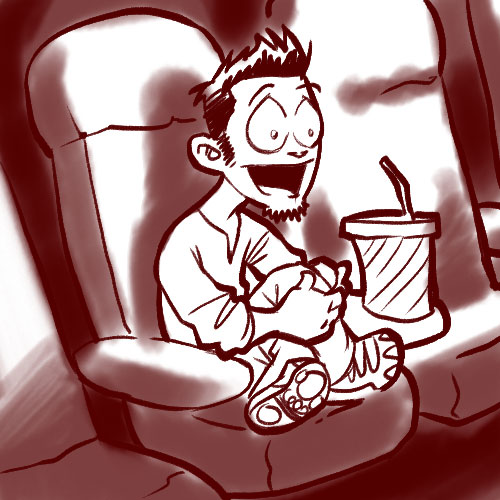Dear Hollywood
I’ve been thinking for a long time about a rant toward Hollywood. Yes, a rant. It’s not about the perceived morality of their industry, nor about any responsibility they should feel for the brands of entertainment they produce. This is a purely financial rant.
Hollywood is too fucking expensive.
I love movies. I love them in an unhealthy, all-consuming, stay-up-late-making-mix-tapes-which-I-leave-anonymously-on-their-front-porch kind of way. I want to have movies’ babies. I can watch them over and over without diminished enjoyment. I watch them when I’m bored, when I need inspiration, when I’m in a great mood, and even when I just want noise in the background while I work. Movies are my radio. So do you get that I love movies? Good. Moving on.
When I was twelve, I saved $21 and took my Mom, Dad, and three siblings to see Disney’s “The Little Mermaid.” Now, $21 buys two matinees. Well, prices rise with time, right? That’s a fair argument, but then I remember that I could buy a Penguin pocketbook novel for $3.50 in those days. So why doesn’t a pocketbook cost $10.50 now?
It’s not the theaters. You’d be wasting your time yelling at the minimum wage ticket-jockey who’s taking your money, because movie theaters don’t make money off of movies. They make money from $8 sodas (only $8.50 for a Jumbogantic!) and nachos that need a bank loan to purchase. The studios get the ticket money.
Film entertainment is an industry with unparalleled growth. Costs and prices have been rising with leaps and bounds since the early Nineties without so much as a hiccup in their momentum. The reason for Hollywood’s price hike isn’t one simple thing of course, but the solution is.
Smaller paychecks.
A-List actors are raking in around $20 million per flick, and same for big directors. That number doesn’t even include “personal perks” expenses that some actors require. When a film boasts a budget of $150 million, only about half of that is production costs and the rest is divvied up between the three most important people on the set. What do they, as a community of laborers, do with that money? I imagine a good bit goes to the various unions and guilds which lobby to promote entertainment-friendly laws and bureaucratic red tape. A bunch goes to charities and foundations, and California taxes get a gigantic bite too.
But we don’t really hear about that spending. We, the public, hear about cars, mansions, hand-painted wallpaper at $3,000 per square yard, imported rain water for washing hair, bling, parties, and divorce settlements with more zeroes than I’ll ever see to the left of a decimal point. It’s ludicrous.
So.
Hollywood. Dear, sweet Hollywood.
If you don’t apply the handbrake to this inflation bullet train, then I fear yours will be the next bubble to burst.
Love,
Nate
